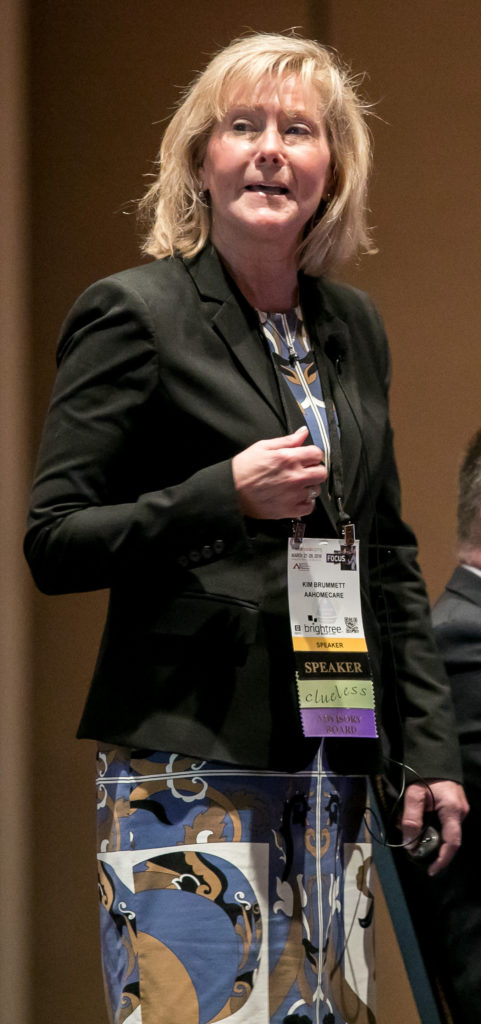
WASHINGTON, DC – On April 27th, CMS rescinded the requirement for revised oxygen CMNs for patients who are on differing liter flows based on sleep, rest or exertion. CMS originally published the documentation requirement on February 15, 2018. AAHomecare immediately took action by reaching out to the DME MACs and CMS to determine the reasoning for this requirement. CMS indicated that the payment criteria for beneficiaries on greater than 4 liters per minute or less than 1 liter per minute required this change to the CMN, specifically question 5.
AAHomecare immediately reached out to various departments within CMS and the DME MACs to advocate that the payment criteria did not require a change to the answer to question 5 which currently requests the prescriber to enter the highest liter flow. Use of the various modifiers has been a requirement for many years, regardless of the value in question 5.
Members of the Regulatory Council expressed our concern with suppliers instructing prescribers on how to complete the CMN as this is specifically not allowed, in addition to instructing them to answer the question differently than the form instructs. The group also counselled CMS that this requirement for revised CMNS would require suppliers to creates tens of thousands of revised CMNs that prescribers would be required to complete and return that would have no impact on payments.
The industry and AAHomecare are thankful that CMS and the DME MACs listened to concerns and rescinded the requirement. This is a great example of the industry working with CMS and the contractors to resolve an issue that has a huge impact on supplier burden.
— Kim Brummett, vice president, Regulatory Affairs, American Association for Homecare
Additional Support Needed for HR 4229
WASHINGTON, DC – While last week’s report that the HME-related Interim Final Rule remains on the radar of the Administration as evidenced by remarks by OMB Director Mick Mulvaney, we need to continue to build support for rural relief on Capitol Hill.
If your legislator is not among the 139 current co-sponsors of HR 4229, the Protecting HOME Access Act, please make another push in the coming weeks to ask that they add their support for the legislation.
If your legislator is not currently among the list of co-sponsors, please call or email the legislative assistant who handles healthcare issues and ask that they sign on as a co-sponsor of HR 4229. You can also make the following points in your communications:
- The legislation is needed to provide a measure of relief for home medical equipment providers in rural areas who have seen Medicare reimbursement rates slashed by 50% or more for many popularly used HME items since January 2016. These rates, derived from the flawed competitive bidding program for home medical equipment, do not adequately take into account the higher costs associated with serving patients distributed over a wide geographical area, as well as the challenges posed by working with rural communities that lack the healthcare infrastructure and support found in urban areas.
- The legislative language would also remedy additional rate cuts for oxygen in rural areas caused by an outdated 2006 budget neutrality offset balancing increased utilization for oxygen generating portable equipment with lower reimbursement for stationary equipment.
- According to a 2017 survey of Medicare beneficiaries, case managers/discharge planners, and home medical equipment suppliers, the bidding program has negatively affected beneficiaries’ access to HME, adversely impacted case managers’ ability to coordinate HME for their patients, and placed additional strain on suppliers to deliver quality products without delay. See Access to Home Medical Equipment: Survey of Beneficiary, Case Manager, and Supplier Experiences: Executive Summary and Complete Study.
- These cuts are also impacting rates for Medicaid, TRICARE, Medicare Advantage plans, and other payers who peg to the Medicare fee schedule.
- Detail how the cuts are affecting your business and your ability to serve HME patients in your community, and note any closings or cutbacks in services by other HME suppliers in your area.
If you are coming to DC for the Washington Legislative conference, please let your legislators know that you plan to discuss the issue in person with them next month.
Please contact Gordon Barnes at [email protected] if you need contact information for the legislative assistant handling healthcare-related issues for your Representative. You can also encourage your colleagues and peers to send an email to your legislators using our Grassroots Action Center.
While getting a significant measure of relief through the IFR or similar regulatory action would certainly be welcome news for the HME community, there is no guarantee that action will be coming or that it will be as substantial as we desire. It’s imperative that we also continue to build support for HR 4229 to make sure we have another avenue for relief if the Administration fails to provide it.


